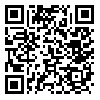Volume 2, Issue 3 (8-2012)
JRSM 2012, 2(3): 69-78 |
Back to browse issues page
Download citation:
BibTeX | RIS | EndNote | Medlars | ProCite | Reference Manager | RefWorks
Send citation to:



BibTeX | RIS | EndNote | Medlars | ProCite | Reference Manager | RefWorks
Send citation to:
Vahdani M, Sheikh Yoosefi R, Moharramzadeh M, Hoseini Keshtan M, jalilvand J. The Relationship between Coach's Leadership Styles and Group Cohesion in Teams Participating in the 10thDomestic Universiade (Male Students). JRSM 2012; 2 (3) :69-78
URL: http://jrsm.khu.ac.ir/article-1-153-en.html
URL: http://jrsm.khu.ac.ir/article-1-153-en.html
Mohsen Vahdani 
 , Reza Sheikh Yoosefi
, Reza Sheikh Yoosefi 
 , Mehrdad Moharramzadeh
, Mehrdad Moharramzadeh 
 , Misagh Hoseini Keshtan
, Misagh Hoseini Keshtan 
 , Jamshid Jalilvand
, Jamshid Jalilvand 


 , Reza Sheikh Yoosefi
, Reza Sheikh Yoosefi 
 , Mehrdad Moharramzadeh
, Mehrdad Moharramzadeh 
 , Misagh Hoseini Keshtan
, Misagh Hoseini Keshtan 
 , Jamshid Jalilvand
, Jamshid Jalilvand 

Abstract: (11304 Views)
The present study examined the relationship between coach's leadership styles and group cohesion in the individual and group teams participating in the 10th sport domestic universiade of male students. 321 out of 1906 students selected as sample of this study. Athletes completed two instruments in this study Leadership Scale for Sport (LSS, Chelladurai & Saleh, 1980) and the Group Environment Questionnaire (GEQ, Carron, Widmeyer, & Brawley, 1985). The LSS contains 40 items that measures five dimensions of leadership styles and The GEQ with 18 items assess the two dimensions group cohesion. Cronbach's alpha coefficient was utilized to examine the internal reliability of LSS (r=0.85) and GEQ (r=0.72). Data were analyzed with one-sample kolmogrov-Smirnov, repeated measures ANOVA, Bonfferoni post hoc test,Pearson Correlation coefficient, and T-test(for independent groups), significance level of P&le0.05. Results showed coaches exhibited higher in training and instruction and lower in autocratic style among both interactive group teams and co-acting teams. Finally, there are no significant differences in task and social levels of interactive group teams and co-acting teams. Results showed coach’s styles of training and instruction, democratic, social support and positive feedback were all positively correlated to group cohesion and autocratic style negatively correlated to group cohesion.
Type of Study: Research |
Accepted: 2022/03/31 | Published: 2012/09/15
Accepted: 2022/03/31 | Published: 2012/09/15
| Rights and permissions | |
 | This work is licensed under a Creative Commons Attribution-NonCommercial 4.0 International License. |



